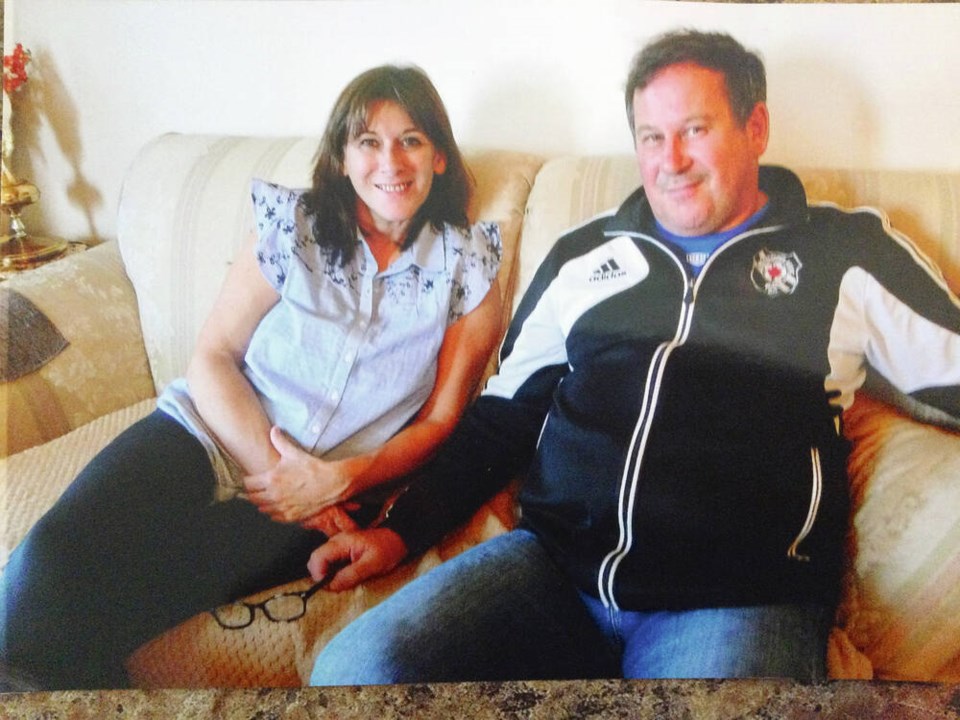Ryan Elder likely killed his mother because he lost his temper, not because he was experiencing a psychotic break and believed his life was at risk, the Crown said in closing arguments Wednesday at the Langford man’s second degree-murder trial.
Elder, 30, has pleaded not guilty, despite giving a detailed account to police of how he stabbed, strangled and punched 59-year-old Raymonde Elder to death, describing it as self-defence.
Officers found her body in the home she shared with her son on New Year’s Eve in 2021. Crown and defence lawyers believe she was killed on Christmas Day.
Elder’s defence team has argued he should be found not criminally responsible due to mental disorder based on the testimony of two forensic psychiatrists, both of whom concluded Elder was experiencing schizophrenia-induced psychosis and was unable to know his actions were wrong at the time of the killing.
Crown prosecutor Patrick Weir challenged the doctors’ conclusions on the basis that they relied on interviews they individually conducted with Elder two to three years after the offence, and on statements collected six or seven days after Raymonde Elder’s death that were based almost entirely on Elder’s own recollection.
There is no evidence of what was going through Elder’s mind at the time of the killing, Weir said.
“No one deals with Mr. Elder for a further six days [after the death]. There are no witnesses. Dr. [Sam] Iskander in particular, pointed this out as a weakness or a limitation, I should say, in his ability to give an opinion,” he said.
In some cases, when a person commits a crime, they’re arrested shortly afterwards and their behaviour and state can be observed at the time, Weir said.
“That’s very helpful, because the closer in time the observations are to the offence, the better those observations will be in predicting whether or not the person was labouring under a mental disorder. But nobody saw that,” he said.
Elder was captured on video visiting Walmart and Canadian Tire on Boxing Day buying new clothing to replace the bloody clothes he wore during the attack — evidence that he knew what he had done was wrong, Weir said.
“If he thought that what he had done was morally justifiable, he wouldn’t do any of that,” he said.
Weir said the information Elder provided to the two doctors is unreliable and ought to be rejected. The doctors themselves said they were skeptical of Elder’s information, but they didn’t challenge him, because that’s not their job, he said.
“That’s not a criticism or a critique or in any way meant to suggest they weren’t fulfilling their duties. They just have a different job, and their job doesn’t require them to do that,” he said.
The court’s job, however, is to challenge Elder’s account and to attempt to corroborate it with evidence, Weir said. Because Elder has not testified, using his statements to the doctors to corroborate his statements to police would mean “trying to validate one interview that’s faulty with another interview that is equally faulty,” he said.
Elder’s father and stepsister previously testified that Elder was a normal, bright, happy person until his early 20s, when he began acting erratically, showering infrequently and talking to himself or to people who weren’t there. He was prescribed anti-psychotic medication after being hospitalized for his mental health.
Weir said the question for the court is not whether Elder was suffering from schizophrenia or any other serious mental disorder, but whether whatever mental disorder Elder was suffering from at the time of his mother’s killing caused psychosis that resulted in him legitimately perceiving his mother to be a threat to his life.
“There are lots of schizophrenic people who don’t murder, and there are lots of murderers who aren’t schizophrenic. So those two things don’t necessarily mean that if you’re schizophrenic, you’re going to be a murderer,” he said.
The trial is expected to wrap up Friday with the completion of the Crown’s closing submissions and defence lawyers delivering a rebuttal.



